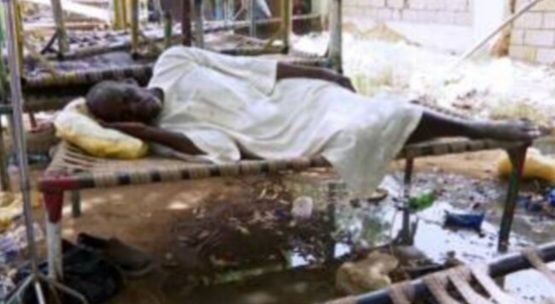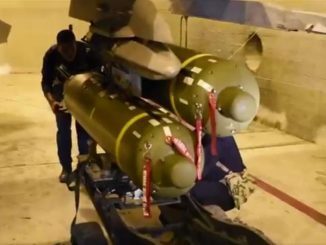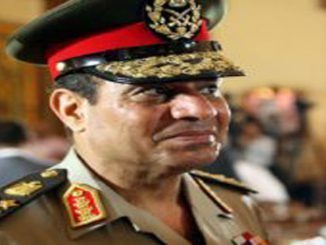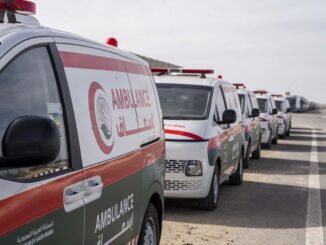
Deteriorating health conditions and a shortage of medical supplies are adding to the suffering of stranded refugees
For hundreds of thousands who fled their homes amid the Sudan conflict, Wadi Halfa in Northern State is the last stop before the Egyptian border, where many have now been waiting for months to obtain an entry visa to Egypt.
Fighting between the Sudanese Armed Forces (SAF) and the Rapid Support Forces (RSF) that started on 15 April has had devastating consequences for civilians.
Nearly 1.4 million people have been newly displaced since 15 April, including 1 million people displaced internally and over 330,000 who have crossed into neighboring countries, such as Egypt.
As of 10 June, 200,000 displaced Sudanese people have entered Egypt from Sudan via the two official border crossings, Argeen and Qustul, since 15 April, as reported by the Ministry of Foreign Affairs (MoFA).
Daily average of arrivals is 5,000 individuals. While UNICEF has access to the borders, the Egyptian Red Crescent (ERC) remains to be the only actor that is allowed to respond to the needs at the borders crossing itself. With the growing influxes, the UNCT was requested by the Egyptian Foreign Ministry (MoFA) to revisit its planning figures
On 30 May, the UN High Commissioner for Refugees, Filippo Grandi, concluded a three-day visit to Egypt with an urgent call for support for people fleeing Sudan – and the countries hosting them – and for the borders to remain open to those escaping the conflict. UNICEF was amongst the UN agencies represented in the HC’s visit to the borders.
The Government of Egypt has imposed visa regulations for Sudanese nationals entering its territories after “the spread of illegal activities,” according to a statement by MoFA. According to statement by the Spokesperson of MoFA, these measures aim to set an organizational framework for the entry of Sudanese into Egypt.
However, conditions at the Sudanese side of the border continue to deteriorate due to lack of water, food, and WASH facilities, all resulting in people being held for long periods of time in dire conditions. According to resources in Sudan, the number of stranded people in Wadi Halfa has reached 100,000 persons.
On 08 June, the Egyptian cabinet passed a draft law in its weekly meeting to regulate the rights of asylum seekers and refugees in the country. The draft law proposes the establishment of a Permanent Committee for Refugee Affairs as the primary legal entity on all refugee matters, the statement continued, which will be created within three months of the law’s issuance. The committee will report to Prime Minister.
The committee will collaborate with UNHCR, other pertinent international organizations, and domestic authorities to provide optimal services and assistance to all refugees. The draft law stipulates that refugees and asylum seekers must formalize their status within one year of the law’s bylaws being ratified.
The humanitarian situation is dire, however people like Mohamed Mansour make use of their time constructively to assist the community.
While waiting for his visa to be issued, Mohamed Mansour has started a free English teaching initiative for stranded families.
“I left home because the situation was worsening daily. Electricity and water were cut and we had been waking up to bombings. I arrived in Wadi Halfa weeks ago and am currently living in a mosque along with many others,” Mansour told Radio Dabanga yesterday.
“Despite the catastrophic situation, I like to spread positivity and hope, that is why I started teaching English.”
All Families have welcomed the idea and currently 15 people joined, “we meet every evening at the Wadi Halfa podium, and we communicate in English.
Most of the people who join are children, who are very enthusiastic about learning the language. One of them is Sahar, an eight-year-old girl who fled her home and lost her school. “She is always on time and she keeps telling me ‘let us start I want to learn’.”
In the morning Mansour sells tea and coffee to generate income as prices are skyrocketing daily.
According to UNICEF over 13.6 million children are in urgent need of life-saving humanitarian support.
In a press release on Thursday , UNICEF Regional Director for the Middle East and North Africa Adele Khodr, said that the toll on children of Sudan is worsening rapidly,” They are not just numbers, they are individuals with families, dreams and aspirations, and they deserve a chance to survive and thrive.”
A situation that was already dire for children before the conflict is now at catastrophic levels, “without an immediate and extensive humanitarian response, the consequences of displacement, lack of basic social services, and protection will have devastating – and long-term – effects on children.”
Khodr added that “Over 620,000 children are suffering from severe acute malnutrition, half of whom may die if not helped in time.
“Despite the challenges with humanitarian access and security due to the active conflict, UNICEF continues to deliver much needed health, water and sanitation, and nutrition supplies across the country.”
Ahmed Abdelrahman, director of operations at Doctors Without Borders (MSF) told Radio Dabanga on Wednesday that, “more than 60,000 people crossed the border to seek safety in South Sudan.”
He confirmed that they have a team in Renk, a town close to the border with South Sudan. “The situation in the town is devastating and new refugees are sleeping on floors without a roof over their heads.”
At the Egyptian border, Abdelrahman says that MSF, in cooperation with the Egyptian Red Crescent, have sent a team to Aswan to evaluate the situation there, “the Arqin and Ashkit borders are overcrowded and the infrastructure is lacking,” he concludes.



